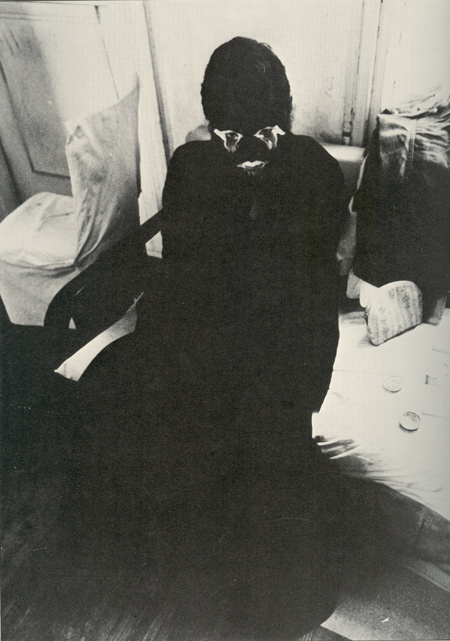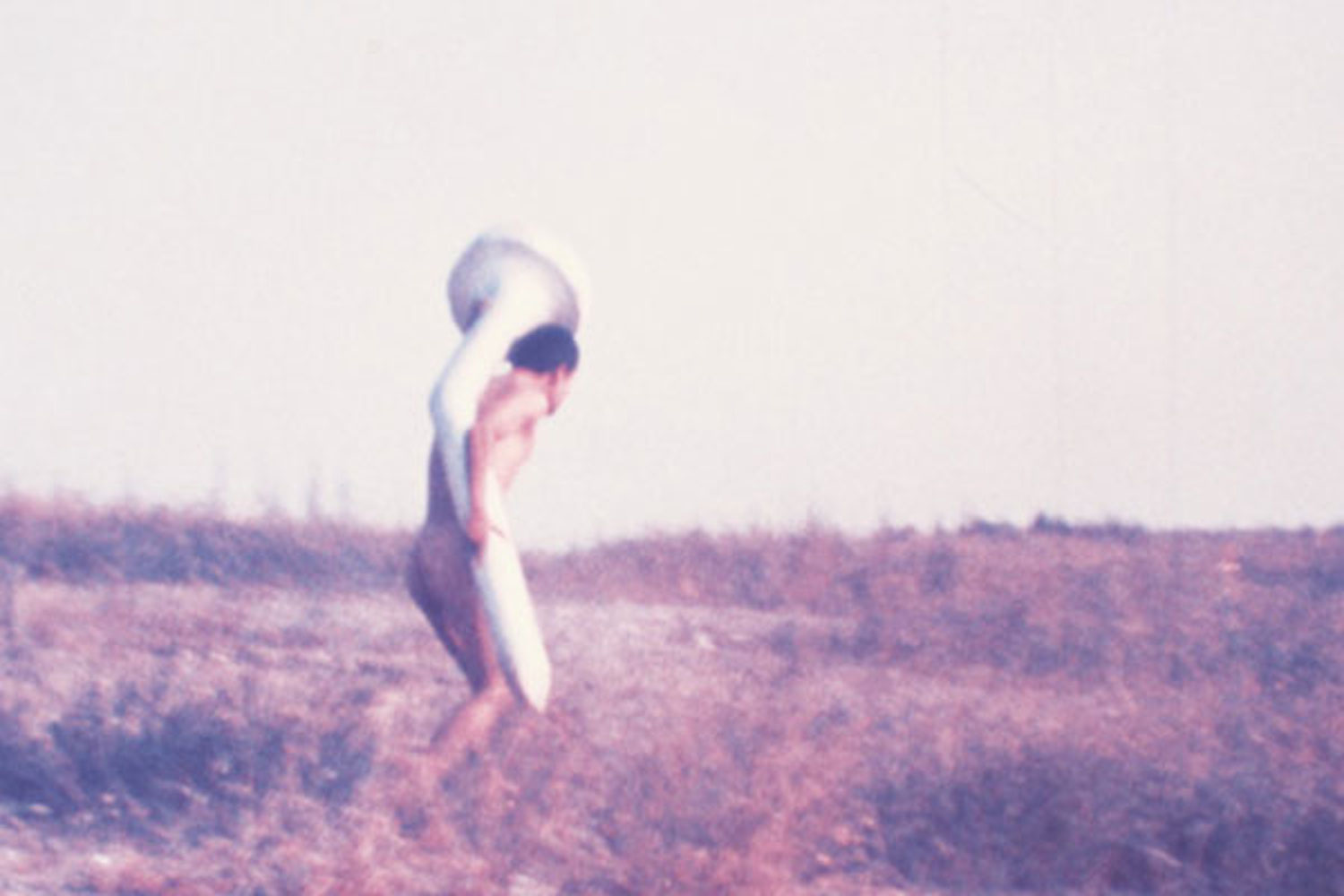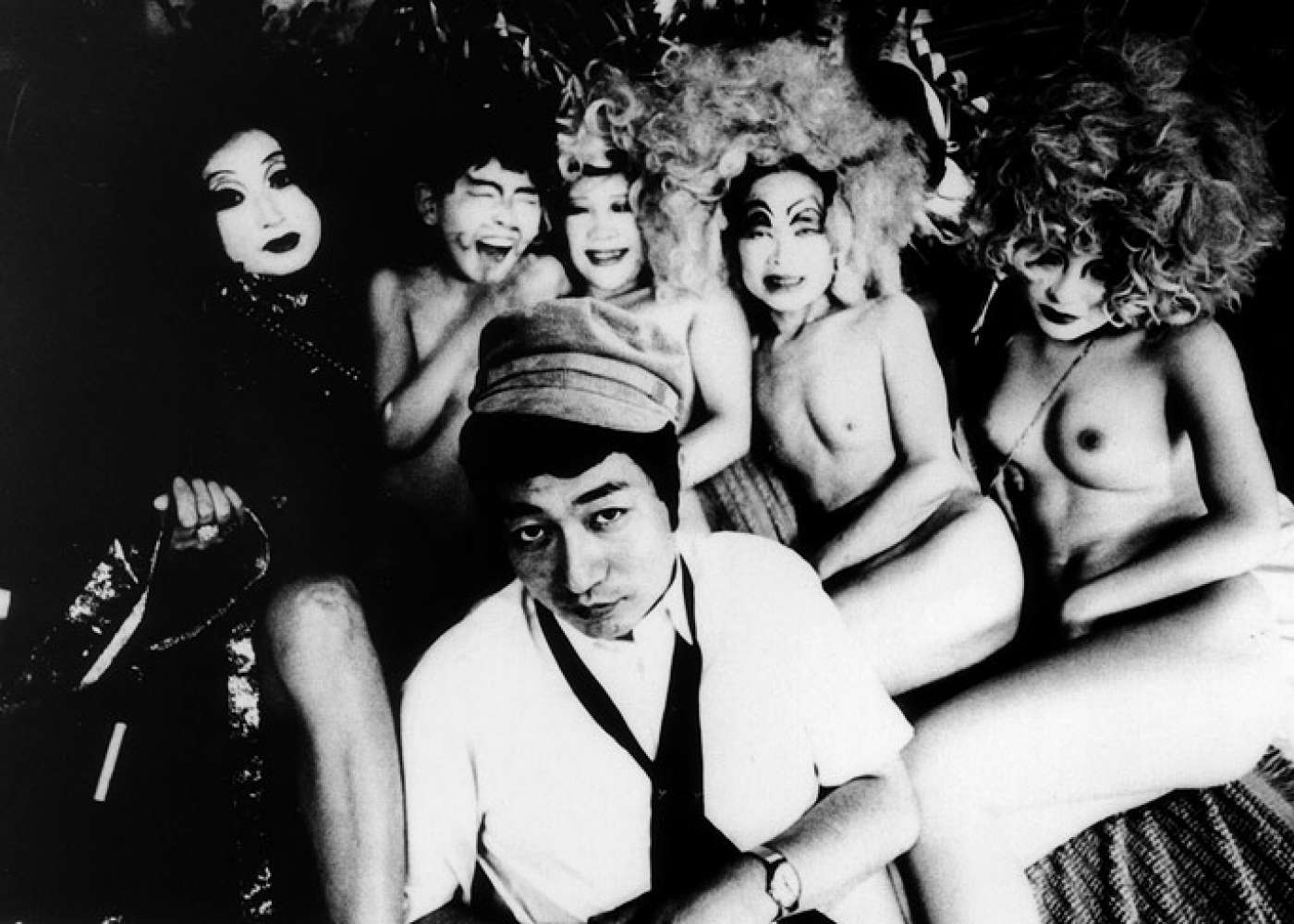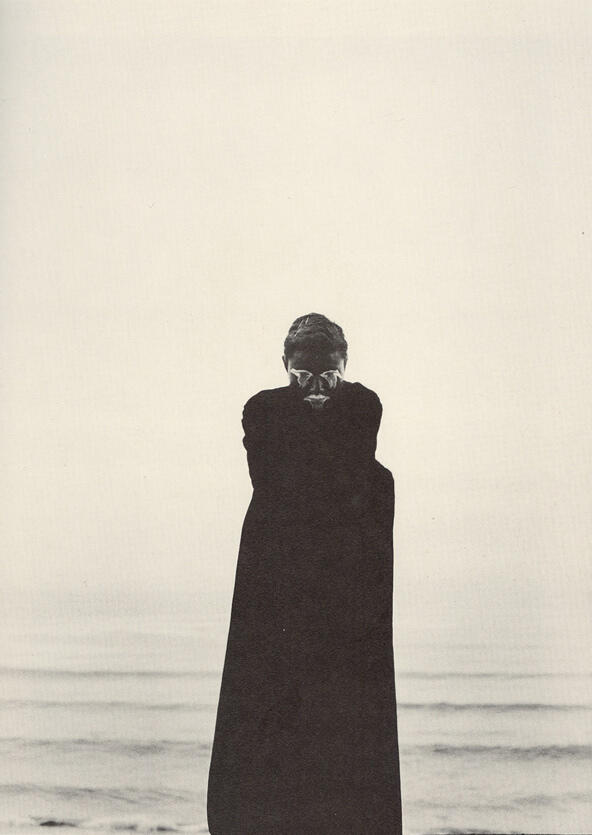Shuji Terayama was born in 1935 in Hirosaki City, Aomori. Throughout his lifetime he established himself as a polymath, working across a variety of mediums, including film, theatre, literature, a stint as a sports announcer and poetry — the medium in which he first made his name writing surrealist versions of traditional Japanese tanka. His works range from radio drama, experimental television, underground (Angura) theatre, countercultural essays, to Japanese New Wave and “expanded” cinema.
In 1967 he formed the experimental theatre troupe Tenjo Sajiki, which became known for its provocative, erotic and political productions, remaining active until Terayama’s death in 1983. He also simultaneously established a progressive cinema and gallery space, going on to make his first major film, a subversive short entitled “The Emperor Tomato Ketchup” in 1971.
Usually critics make comparisons of his work to the work of Ren Hang, as both artists sought to challenge authority and overthrow convention in radical and boundary-pushing ways.
Many critics view him as one of the most productive and provocative creative artists to come out of Japan.



